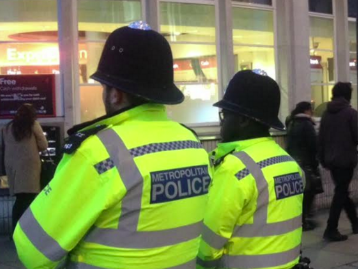Stop-and-search is failing to deliver
Friday, 31st January 2020

• STOP-AND-SEARCH is not delivering. Last week we learned that the Metropolitan Police in Islington carried out nearly 25,000 stop and searches in the last three years.
Last week we also learned that knife crime in London has now reach an all-time high with more than 15,000 offences in the last 12 months.
Based on this as many as 45 people are apparently stopped and searched each day in Islington; 21 of the searched people would have been black and 24 would have been white or “other”. There are six arrests for every 45 people searched, three black and three white or “other”.
The percentage of arrests among black people searched and others searched is very similar. But only just over one in eight people in Islington is black; thus the number of black people subjected to a stop-and-search, almost one in two, is disproportionate.
For everyone’s understanding, a police officer has powers to stop and search only if they have “reasonable grounds” to suspect the person is carrying illegal drugs, a weapon, stolen property, or something which could be used to commit a crime, such as a crowbar.
Given that 70 per cent of stop and searches lead to no further action and less than 15 per cent lead to an arrest, it is reasonable to suggest that these stop and searches are not as “intelligence-led” as the Metropolitan Police Service claim they are.
Last October police also scrapped monthly sessions where community monitoring groups would visit police stations to see bodycam footage, to ensure good practice was followed. These sessions were scrapped over privacy concerns.
None of this helps to alleviate the main concerns that (1) ethnic minorities are disproportionally targeted in stop and searches and (2) that the vast majority of stops and searches do not result in any action.
All this while knife crime it an all-time high. Though good for publicity, stops and searches have very limited effect.
The Green Party believes the police cannot solve crime by themselves and can only achieve its objectives if supported by political will, backed up by policies that are directed at improving the quality, as opposed to simply the material wealth, of our society.
Current approaches are a confusion of deterrence and punishment mixed with compensation and rehabilitation. This muddle of conflicting principles undermines the potential for success of even the positive aspects of the present system.
Islington has one of the highest child poverty rates in London (38 per cent). That should be the background to every new headline informing us of (knife) crime.
RODERIK GONGGRIJP
Islington Green Party